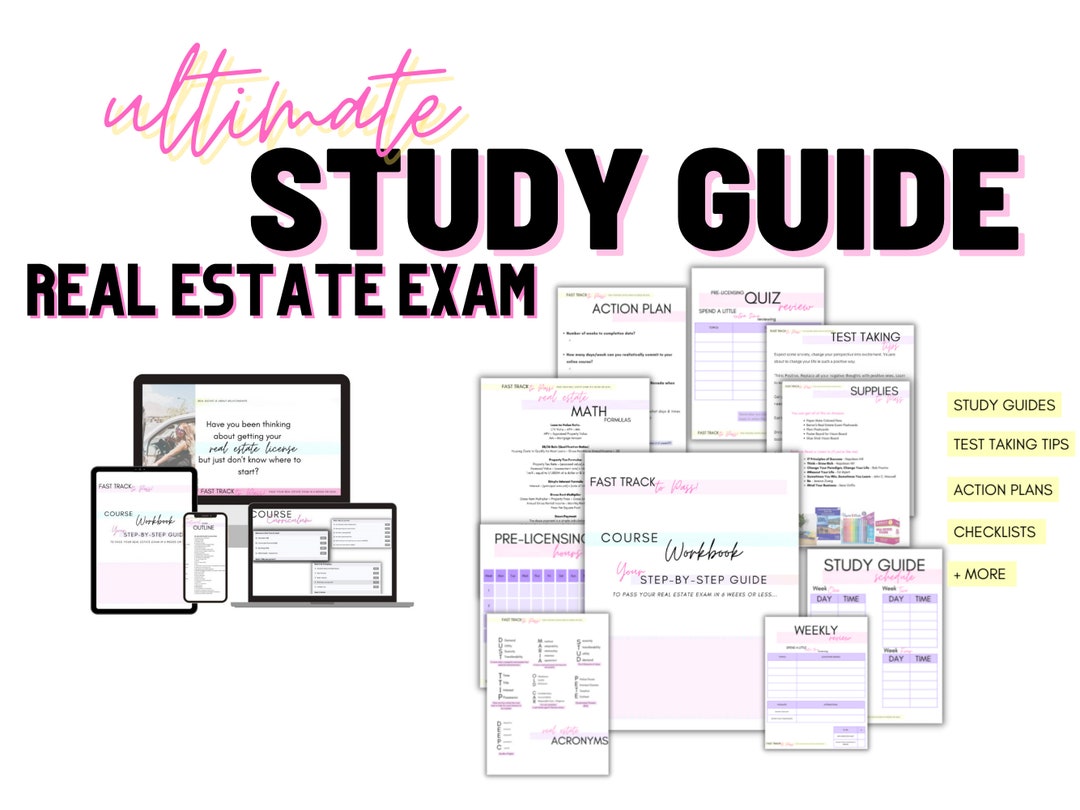Introduction To Real Estate School: A Comprehensive Guide
In the world of real estate, knowledge is power. Whether you’re a seasoned agent or just starting out, having a solid understanding of the industry is crucial for success. That’s where real estate school comes in – a valuable resource for anyone looking to break into the business or take their career to the next level. In this article, we’ll delve into the world of real estate school, exploring its benefits, curriculum, and what to expect from these educational programs.

What is Real Estate School?
Real estate school, also known as real estate education or training, is a type of educational program designed to teach individuals the skills and knowledge needed to succeed in the real estate industry. These programs are typically offered by state-approved schools, colleges, or universities, and are designed to prepare students for the licensing exam required to become a real estate agent or broker.
Benefits of Real Estate School
Attending real estate school offers a multitude of benefits for aspiring agents and brokers. Some of the most significant advantages include:
- Enhanced Knowledge: Real estate school provides students with a comprehensive understanding of the industry, including laws, regulations, and best practices.
- Licensing Preparation: These programs are designed to prepare students for the licensing exam, increasing their chances of passing on the first try.
- Networking Opportunities: Real estate school provides a great opportunity to connect with other aspiring agents and industry professionals, potentially leading to valuable connections and future business opportunities.
- Career Advancement: For existing agents, real estate school can provide a way to stay up-to-date with industry developments and enhance their skills, leading to career advancement and increased earning potential.
- Increased Earning Potential: According to the Bureau of Labor Statistics, real estate agents with a higher level of education and training tend to earn higher salaries than those without.
Curriculum and Coursework
The curriculum and coursework for real estate school vary depending on the state and institution, but most programs cover the following topics:
- Real Estate Principles: Introduction to the real estate industry, including types of property, ownership, and transfer of ownership.
- Real Estate Law: Overview of state and federal laws governing real estate, including contract law, property law, and ethics.
- Real Estate Finance: Understanding of real estate finance, including mortgages, loans, and financing options.
- Appraisal: Introduction to real estate appraisal, including methods of valuation and appraisal techniques.
- Real Estate Practice: Practical training in real estate sales, marketing, and negotiations.
Types of Real Estate Schools
There are several types of real estate schools, each catering to different needs and learning styles. Some of the most common types include:
- Traditional Classroom: In-person instruction, typically offered by state-approved schools or colleges.
- Online Courses: Web-based training, allowing students to complete coursework on their own schedule.
- Correspondence Courses: Self-study programs, often using textbooks, DVDs, or other study materials.
- Hybrid Programs: Combination of online and in-person instruction, offering flexibility and convenience.
How to Choose a Real Estate School
With so many real estate schools to choose from, selecting the right one can be a daunting task. Here are some factors to consider when making your decision:
- State Approval: Ensure the school is approved by your state’s real estate commission.
- Accreditation: Look for schools accredited by a recognized accrediting agency.
- Course Offerings: Consider the types of courses and programs offered, including any specializations or concentrations.
- Instructors: Research the qualifications and experience of the instructors teaching the courses.
- Reviews and Ratings: Read reviews and check ratings from current and former students to get an idea of the school’s reputation.
Frequently Asked Questions (FAQ)
- Q: What is the cost of real estate school?
A: The cost of real estate school varies depending on the institution, location, and type of program. On average, students can expect to pay between $200 and $1,000 for pre-licensing courses. - Q: How long does real estate school take to complete?
A: The duration of real estate school depends on the program and state requirements. Pre-licensing courses typically take 60-90 hours to complete, while full-time programs can last several months. - Q: Can I complete real estate school online?
A: Yes, many real estate schools offer online courses and programs, allowing students to complete coursework on their own schedule. - Q: What is the passing rate for the licensing exam?
A: The passing rate for the licensing exam varies by state, but on average, around 70-80% of students pass on their first attempt. - Q: Can I become a real estate agent without attending real estate school?
A: While it’s possible to become a real estate agent without attending real estate school, it’s highly recommended to complete pre-licensing courses to ensure success on the licensing exam and in the industry.
Conclusion
Real estate school is an essential step for anyone looking to succeed in the real estate industry. By providing a comprehensive education in real estate principles, law, finance, appraisal, and practice, these programs prepare students for the licensing exam and a rewarding career as a real estate agent or broker. Whether you’re just starting out or looking to advance your career, real estate school offers a wealth of benefits, including enhanced knowledge, networking opportunities, and increased earning potential. When choosing a real estate school, consider factors such as state approval, accreditation, course offerings, instructor qualifications, and reviews from current and former students. With the right education and training, you’ll be well on your way to a successful and fulfilling career in real estate.
Closure
Thus, we hope this article has provided valuable insights into Introduction to Real Estate School: A Comprehensive Guide. We thank you for taking the time to read this article. See you in our next article!










Post Comment